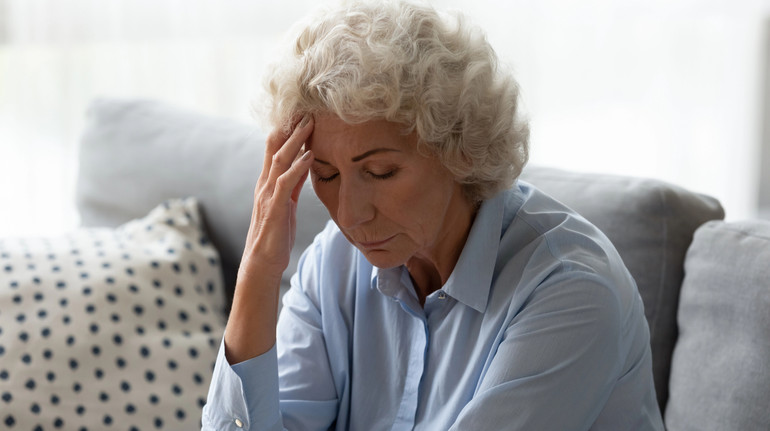Why not the elderly should ignore excessive fatigue

Why the elderly should not ignore fatigue – the doctor explains
Photo: FIZKES/Depositphotos
Feeling a little less vigorous in the elderly is natural. In 65 you do not expect as much liveliness as at 20.
But if you are constantly fatigue, you should not take it as the norm. This condition can indicate the presence of serious health problems, and therefore should not be ignored.
What you need to know the elderly about fatigue and what unexpected reasons should not be underestimated – a specialist in geriatric medicine, Dr. Ardeshir Gashmi explained Cleveland Clinic.
When is fatigue that is a problem?
Fatigue should be alert if you feel a stable, consuming exhaustion, which complicates the performance of any action, even ordinary household chores, such as loading a dishwasher or covering a bed.
Unlike fatigue after exercise, such fatigue is not temporary and eventually deteriorates, says Dr. Gashmi.
« Even if you have motivation to do something, energy is not enough. You just don’t have the strength to » move out of place « or able to do something only a short period of time, » – the doctor explains.
What causes fatigue in the elderly?
Factors that often provoke fatigue in older people:
- dehydration;
- infections or diseases;
- side effects of medication;
- sleep disorders;
- Chronic diseases, such as cancer, Parkinson’s disease or rheumatoid arthritis (up to 74% of people with such diagnoses).
However, in many cases, there are less obvious causes that are easy to miss.
Hidden sources of fatigue in the elderly
Anemia (iron deficiency)
Reduced levels of erythrocytes in the blood leads to the fact that the body does not receive enough oxygen – and this causes chronic fatigue. Often this is accompanied by other symptoms: dizziness, shortness of breath, darkening of urine, or palpitations.
Hormonal changes
Hypothyroidism (reduced thyroid function) is often found after 60 years and is accompanied by fatigue. Also, decreased estrogen or testosterone levels affect energy, mood and sleep quality.
« Hormones control many processes in the body. Their imbalance can lead to exhaustion, » – the doctor notes.
Mental health problems
Poor psycho -emotional state is often accompanied by fatigue. It is especially felt by people who are experiencing depression, loneliness or social isolation.
Particularly dangerous is Atypical depressionWhen the lack of mood is not noticeable, but the person is constantly tired and drowsy.
Even if you don’t feel sad, Fatigue can be a symptom of atypical depressionwhich is not accompanied by a depressed mood.
« A person with atypical depression may not cry or look sad, but constant fatigue is already a signal of ailment. If you sleep or often sleep in the afternoon, tell your doctor about it, » – says Dr. Gashmi.
How to prevent fatigue in the elderly
For this doctor recommends:
- to move daily – even 10 minutes of light activity are effective;
- Use enough protein – it supports muscles and helps to counteract fatigue;
- Add antioxidants (berries, nuts, avocados, dark chocolate) to the diet – they reduce inflammation and maintain immunity.
« Prevention and consistency is the key to energy conservation. Try to act consciously and consistently – it will help to prevent the problem », – I emphasize the doctor.
Earlier we toldthat scientists recommend eating to stay healthy after 70 years.






/s3/static.nrc.nl/images/gn4/data133317775-d0126f.jpg)
